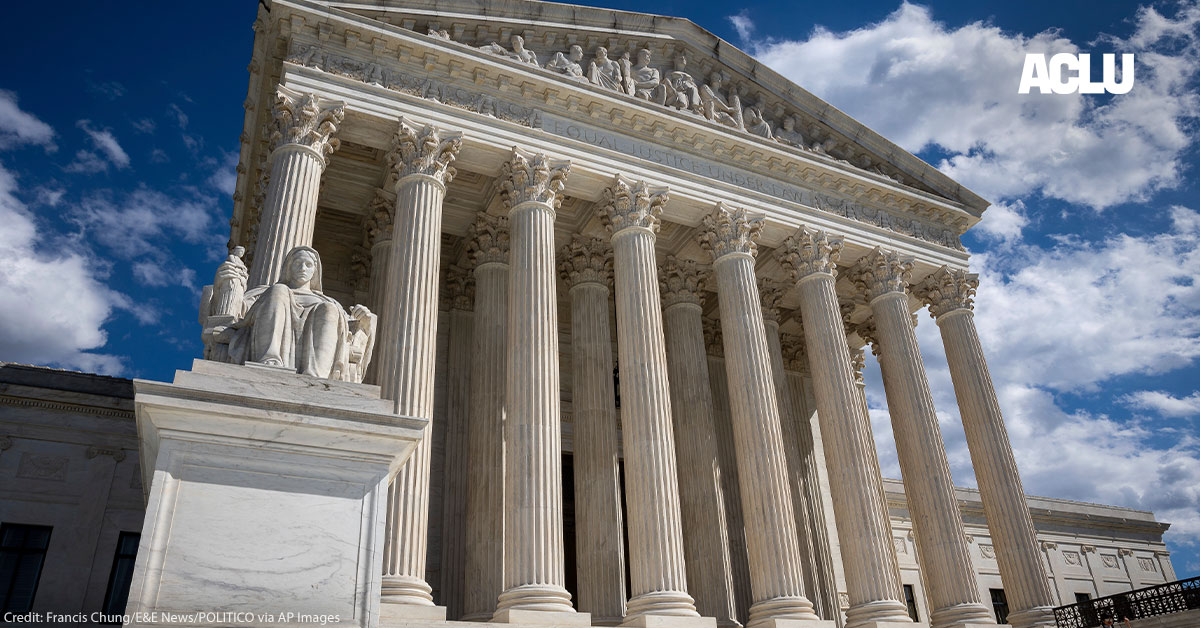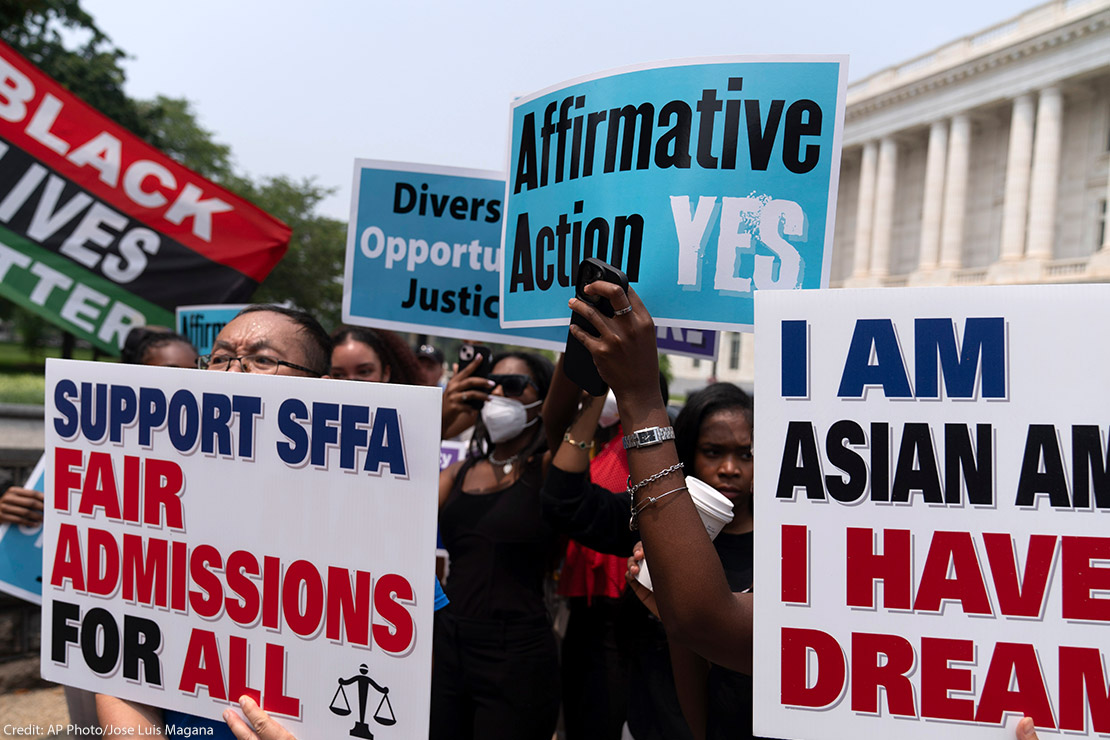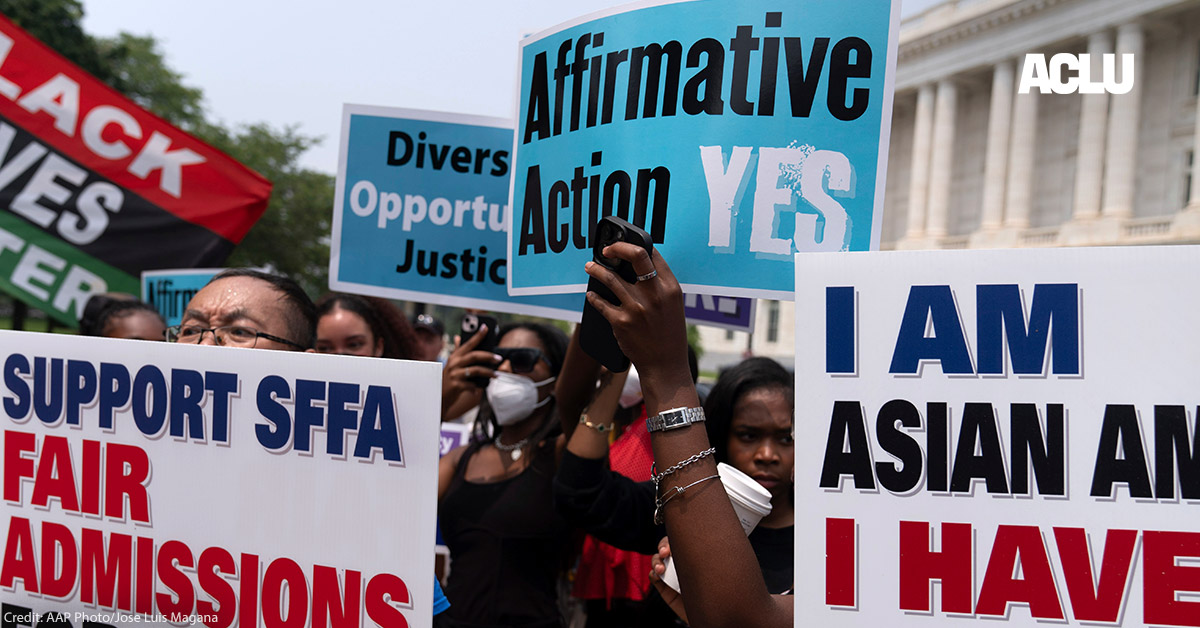At the end of its term, the Supreme Court upended established equal protection law with its decision in SFFA v. Harvard and SFFA v. UNC, effectively eliminating the use of affirmative action in college admissions. The court’s decision disregards prior precedent, as well as the societal realities of race discrimination and inequality.
Many schools, as well as the courts, recognize that diversity exposes students to new ideas and ways of thinking, prepares them to live and work with one another in a diverse society, and increases understanding and respect across differences. Those findings have not changed, although schools will need to rely more on other means of cultivating a campus where students of all backgrounds can learn together.
While this legal decision is indisputably a major setback, it is not the end of the drive to open educational opportunities for people of color. As we press forward in this work, here are four answers to crucial questions in the wake of the affirmative action rulings:
What can college admissions offices still do to ensure they create opportunities for students of color?
Affirmative action in college admissions has been an important tool, but it is not the only avenue for ensuring that educational opportunities are open to all. In the absence of affirmative action, it is more important than ever that schools work to identify and remove inequitable barriers to higher education. At a minimum, schools must continue to comply with federal and state civil rights laws that require them to provide educational opportunities on an equal basis. They can achieve this by ensuring that policies and practices do not unnecessarily limit opportunities for people on the basis of race or ethnicity (or other protected characteristics, including disability, sex, sexual orientation and gender identity) and by ensuring that school climate enables all students to access and engage with educational opportunities.
Other ways to increase opportunities include:
After students are admitted, how can colleges work to create and foster diverse and equitable campuses?
Creating a campus environment where students feel they belong and can fully engage academically is important to student recruitment and to students’ success once enrolled. This can include making classroom teaching methods more fair and inclusive; providing curriculum, programs and activities that speak to students’ diverse interests and lived experiences; reforming programs intended to fill k-12 learning gaps; removing financial obstacles to academic success; addressing bias in advising; meeting students’ basic needs for food, housing, and transportation; and supporting the needs of parenting students.
Additionally, ensuring that higher education opportunities are open to everyone requires taking a broader view of higher education. The affirmative action cases depict a higher education experience that begins with a highly competitive admissions process to an elite institution where students graduating from high school spend the next four years on campus. Equity for students who follow this path is important. But most students, regardless of their race or ethnicity, do not follow this path, and ensuring educational opportunity is open to all is broader than this. Enhancing support for community colleges and addressing educational equity across the spectrum of higher education is also important.
What do affirmative action rulings mean for other institutions? For example, can employers still pursue more racially equitable practices in the hiring process?
The decisions in the SFFA cases address the unique practice of affirmative action in higher education. They do not alter the substantially developed body of law setting the standards for compliance with federal civil rights in other areas, such as employment, lending, and housing, which each contain specific obligations. Entities are still required to comply with existing guidance in these areas.
Additionally, all recipients of federal financial assistance are required to comply with Title VI of the Civil Rights Act, which prohibits entities from discriminating, including through policies that have the effect of unnecessarily disadvantaging people on the basis of race. As with schools, recipients of federal funds can and should operate with neutral policies and practices that ensure opportunities are open equally to people of all races. This means that entities should periodically review their policies and practices to ensure that they do not unnecessarily inhibit equal opportunities on the basis of race or otherwise.
What ripple effects might these decisions have on K-12 education?
The SFFA decisions do not alter the legal landscape for K-12 education. In 2007, the Supreme Court clarified in Parents Involved in Community Schools v. Seattle School District No. 1 that K-12 schools cannot use race-based student assignment practices to pursue diversity and integration. Following this decision, K-12 schools have already been operating under the guidelines similar to those announced for colleges in the SFFA decisions. The Supreme Court recognized the important values of diversity in K-12 education, and those values can be pursued through neutral policies. The court’s decision this term in Allen v. Milligan reaffirmed the understanding that examining the effects of government policies to ensure that opportunities are “equally open” to people of all races is permissible.
Schools are required at a minimum to comply with federal and state civil rights laws requiring educational opportunities to be equally available to students of all races. The educational mission of K-12 schools is best served when all students can learn together. School districts can and should continue to use a range of tools to address racially divided educational settings.



